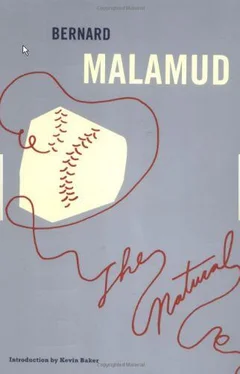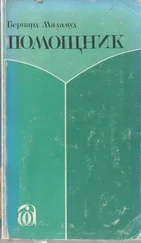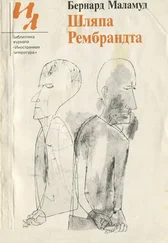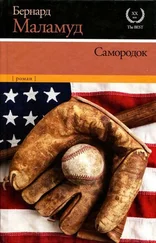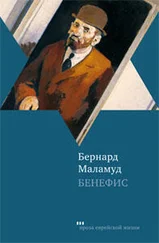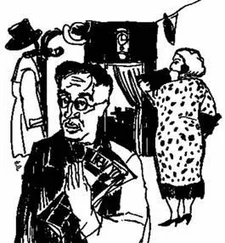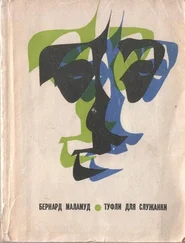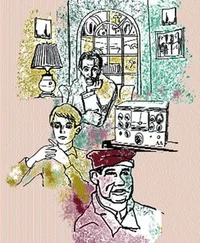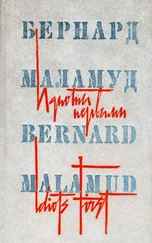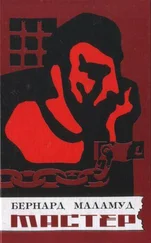Бернард Маламуд - The Natural
Здесь есть возможность читать онлайн «Бернард Маламуд - The Natural» весь текст электронной книги совершенно бесплатно (целиком полную версию без сокращений). В некоторых случаях можно слушать аудио, скачать через торрент в формате fb2 и присутствует краткое содержание. Жанр: Классическая проза, на английском языке. Описание произведения, (предисловие) а так же отзывы посетителей доступны на портале библиотеки ЛибКат.
- Название:The Natural
- Автор:
- Жанр:
- Год:неизвестен
- ISBN:нет данных
- Рейтинг книги:4 / 5. Голосов: 1
-
Избранное:Добавить в избранное
- Отзывы:
-
Ваша оценка:
- 80
- 1
- 2
- 3
- 4
- 5
The Natural: краткое содержание, описание и аннотация
Предлагаем к чтению аннотацию, описание, краткое содержание или предисловие (зависит от того, что написал сам автор книги «The Natural»). Если вы не нашли необходимую информацию о книге — напишите в комментариях, мы постараемся отыскать её.
The Natural — читать онлайн бесплатно полную книгу (весь текст) целиком
Ниже представлен текст книги, разбитый по страницам. Система сохранения места последней прочитанной страницы, позволяет с удобством читать онлайн бесплатно книгу «The Natural», без необходимости каждый раз заново искать на чём Вы остановились. Поставьте закладку, и сможете в любой момент перейти на страницу, на которой закончили чтение.
Интервал:
Закладка:
All this irritated Roy no end until he happened to notice Memo walk into the lobby one night with a paper turned to the sports page. From having read the same paper he knew she had seen a column about Bump and him as batsmen, so he decided there might be some percentage to all these comparisons. He came to feel more kindly to the memory of Bump and thought he was not such a bad egg after all, even if he did go in for too many screwball gags. Thinking back on him, he could sort of understand why Memo had been interested in him, and he felt that, though he was superior to Bump as an athlete, they were both money players, both showmen in the game. He figured it was through these resemblances that Memo would gradually get used to him and then come over all the way, although once she did, it would have to be for Hobbsie himself and not for some ghost by another name.
So he blazed away for her with his golden bat. It was not really golden, it was white, but in the sun it sometimes flashed gold and some of the opposing pitchers complained it shone in their eyes. Stuffy Briggs told Roy to put it away and use some other club but he stood on his rights and wouldn’t. There was a hot rhubarb about that until Roy promised to rub some of the shine off Wonderboy. This he did with a bambone, and though the pitchers shut up, the bat still shone a dull gold. It brought him some wondrous averages in hits, runs, RBI’s and total bases, and for the period of his few weeks in the game he led the league in homers and triples. (He was quoted in an interview as saying his singles were “mistakes.” And he never bunted. “There is no percentage in bunts.” Pop shook his head over that, but Red chuckled and said it was true for a wonderful hitter like Roy.) He also destroyed many short-term records, calling down on his performance tons of newspaper comment. However, his accomplishments were not entirely satisfying to him. He was gnawed by a nagging impatience — so much more to do, so much of the world to win for himself. He felt he had nothing of value yet to show for what he was accomplishing, and in his dreams he still sped over endless miles of monotonous rail toward something he desperately wanted. Memo, he sighed.
Pop couldn’t believe his amazed eyes. “Beginner’s luck,” he muttered. Many a rookie had he seen come out blasting them in the breeze only to blow out in it with his tail between his legs. “The boy’s having hisself a shower of luck. Usually they end up with a loud bust, so let’s wait and see,” he cautioned. Yet Roy continued on as before, by his own efforts winning many a ball game. The team too were doubtful he could go on like this, and doubtful of their doubt. They often discussed him when he wasn’t around, compared him to Bump, and argued whether he was for the team or for himself. Olson said he was for the team. Cal Baker insisted no. When asked for a reason he could give none except to say, “Those big guys are always for themselves. They are not for the little guy. If he was for us why don’t he come around more? Why does he hang out so much by himself?” “Yeah,” answered Olson, “but we’re outa the cellar now and who done that — the wind? That’s what counts, not if he sits around chewin’ his ass with us.” Most of them agreed with Olson. Even if Roy wasn’t actively interested in them he was a slick ballplayer and his example was having a good effect on them. In the course of three weeks they had achieved a coordination of fielding, hitting and pitching (Fowler and Schultz were whipping the opposition, and Hinkle and Hill, with an assist here and there from McGee, were at least breaking even) such as they had not for seasons known. Like a rusty locomotive pulling out of the roundhouse for the first time in years, they ground down the tracks, puffing, wheezing, belching smoke and shooting sparks. And before long they had dislodged the Reds, who had been living on the floor above them since the season started. When, near the end of July, they caught up with the Cubs and, twelve games behind the league-leading Pirates, took possession of sixth place, Pop rubbed his unbelieving eyes. The players thought now that the team is on its way up he will change his crabby ways and give us a smile once in a while, but Pop surprised them by growing sad, then actually melancholy at the thought that but for his keeping Roy out of the line-up for three weeks they might now be in first division.
A new day dawned on Knights Field. Looking down upon the crowds from his office in the curious tower he inhabited that rose on a slight tilt above the main entrance of the ball park, Judge Goodwill Banner was at first made uneasy by what he saw, for every rise in attendance would make it more difficult for him to get Pop to give up the managerial reins, a feat he hoped to accomplish by next season. However, the sound of the merry, clicking turnstiles was more than he could resist, so, although reluctantly, he put on extra help to sweep the stands and ramps and dust off seats that hadn’t been sat in for years but were now almost always occupied.
The original Knights “fans,” those who had come to see them suffer, were snowed under by this new breed here to cheer the boys on. Vegetables were abolished, even at the umps, and the crowd assisted the boys by working on the nerves of the visiting team with whammy words, catcalls, wisecracks, the kind of sustained jockeying that exhausted the rival pitchers and sometimes drove them out of the game. Now the old faithful were spouting steam — the Hungarian cook outcrowed a flock of healthy roosters, Gloria, the vestibule lady, acquired a better type customer, and Sadie Sutter gave up Dave Olson and now beat her hectic gong for the man of the hour. “Oh, you Roy,” she screeched in her yolky cackle, “embracez moy,” and the stands went wild with laughter. Victory was sweet, except for Otto Zipp, who no longer attended the games. Someone who met him waddling out of a subway station in Canarsie asked how come, but the dwarf only waved a pudgy palm in disgust. Nobody could guess what he meant by that and his honker lay dusty and silent on a shelf in the attic.
Even the weather was better, more temperate after the insulting early heat, with just enough rain to keep the grass a bright green and yet not pile up future double headers. Pop soon got into the spirit of winning, lowered the boom on his dismal thoughts, and showed he had a lighter side. He unwound the oily rags on his fingers and flushed them down the bowl. His hands healed and so did his heart, for even during the tensest struggle he looked a picture of contentment. And he was patient now, extraordinarily so, giving people the impression he had never been otherwise. Let a man bobble a hot one, opening the gate for a worrisome run, and he no longer jumped down his throat but wagged his head in silent sympathy. And sometimes he patted the offender on the surprised back. Formerly his strident yell was everywhere, on the field, in the dugout, clubhouse, players’ duffel bags, also in their dreams, but now you never heard it because he no longer raised his voice, not even to Dizzy’s cat when it wet on his shoes. Nobody teased him or played jokes on him any more and every tactic he ordered on the field was acted on, usually successfully. He was in the driver’s seat. His muscles eased, the apoplexy went out of his system, and for his star fielder a lovelight shone in his eyes.
As Roy’s fame grew, Bump was gradually forgotten. The fans no longer confused talent with genius. When they cheered, they cheered for Roy Hobbs alone. People wondered about him, wanted news of his life and career. Reporters kept after him for information and Max Mercy, who for some reason felt he ought to know a lot more about Roy than he did, worked a sharp pickax over his shadow but gathered no usable nugget. All that was known was that Roy had first played ball on an orphan asylum team, that his father was a restless itinerant worker and his mother rumored to have been a burlesque actress. Stingy with facts, Roy wouldn’t confirm a thing. Mercy sent a questionnaire to one thousand country papers in the West but there were no towns or cities that claimed the hero as their own.
Читать дальшеИнтервал:
Закладка:
Похожие книги на «The Natural»
Представляем Вашему вниманию похожие книги на «The Natural» списком для выбора. Мы отобрали схожую по названию и смыслу литературу в надежде предоставить читателям больше вариантов отыскать новые, интересные, ещё непрочитанные произведения.
Обсуждение, отзывы о книге «The Natural» и просто собственные мнения читателей. Оставьте ваши комментарии, напишите, что Вы думаете о произведении, его смысле или главных героях. Укажите что конкретно понравилось, а что нет, и почему Вы так считаете.
